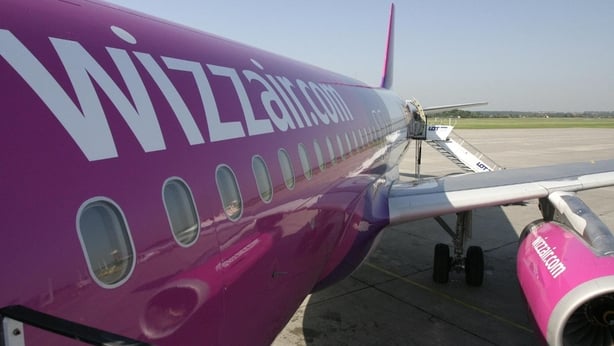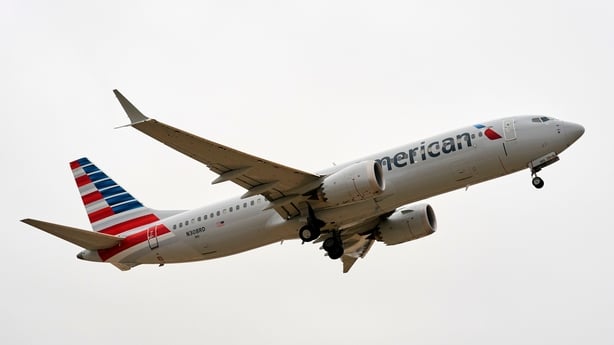When you hear 'all you can eat', you probably think ‘buffet’.
But the ‘all you can…’ business model is more common than you might realise – and more businesses are now using it as a way of drumming up new revenue.
Subscription services like Netflix or Spotify are, effectively, using an ‘all you can watch’ or ‘all you can listen’ business model.
After all, you pay your monthly fee and you get access to their catalogue and there’s no rule that says you can only watch or listen for so many hours, or any extra charges to access certain types of content.
In theory, you could have it running constantly for the entire month and pay the same amount as someone who only uses it for an hour.
It’s a similar story with our mobile phones – most people nowadays are on some version of an ‘unlimited’ or ‘all you can eat’ package, where they pay a set fee each month and get unlimited calls, texts and data.
The reality there, though, is that those deals are rarely completely ‘unlimited’.
When you dig into the terms and conditions you will almost always find details about the ‘fair use’ policy, which effectively puts a limit on the amount you can use it before you’re cut off. That may involve the network having the right to limit your connection or throttle your speed if they feel you are "abusing" the service.
For the average user, though, those ‘fair usage’ limits are probably well above what they’d need each month.
But despite those phones and subscriptions effectively being ‘all you can eat’, we probably don’t think of them that way.
That’s because we don’t really "get" anything for it – it’s all digital, it’s not real.
Increasingly, though, there are companies that are offering something very real in return for your fee.
Like what?
Last month Wizz Air unveiled an ‘all you can fly’ offer.
It was priced initially at €500 per year, rising to €600 after an introductory offer… though it’s completely sold out at the moment so it’s not available at any price.
And what it offers for that annual payment is access to its 780 routes across Europe, which users can book as many flights as they want on over the 12 months period.
Is there a catch?

There are multiple catches.
That upfront fee doesn’t entirely cover the cost of the flights you take – you have to pay a €10 booking fee on each flight you select.
That’s going to add to the cost and make it a little harder for users to get their money’s worth.
It also doesn’t include any backage – you can bring a small carry-on back for free, but if you want a bigger carry on bag, or a checked back, it’s going to cost you extra.
But perhaps the biggest catch of all is that you can only book flights within a three day window of take-off – you can’t book weeks or even a week in advance.
And that creates two problems.
Firstly, the offer is subject to availability, there are no seats kept in reserve for all you can fly ticket holders… and there’s a good chance a flight will be full three days before take-off.
So that’s going to limit your options.
But it’s also going to make it very hard for you to plan – if you’re going on a holiday, you’re going to have to wait until the last minute to book accommodation, which means you’re probably going to pay over the odds.
And if you’re going on anything more than a weekend trip, you’re going to be flying out without a return flight booked – because you have to wait for that three day window.
So you won’t know for sure when you’re going to get back.
That may suit a certain type of traveller – like a business commuter, or someone who likes to free-wheel it a bit – and has maybe has flexibility in terms of work.
But for a lot of people, it’s going to make it very restrictive.
So is Wizz Air hoping that people won’t manage to take €600 worth of flights in a year?
To some degree, yes.
It’s the gym or health club business model, where the most profitable members are the ones who use the facilities the least.
But there are other attractions for Wizz Air.
This is a guaranteed chunk of revenue up front – as opposed them hoping that people book multiple flights over the course of the year.
It also creates a sunk cost for customers – so if you’ve paid for one of these tickets, and you’re looking to fly somewhere, you’ll go with Wizz.
That’s probably going to be the case even if it means flying on a day or time that doesn’t really suit you, and even if another airline has a better alternative.
If you didn’t have the ticket you’d shop around for the best option in terms of price or time, which might not be Wizz.
And Wizz will know that, even if a customer uses the service a lot, they’re still going to get extra revenue.
There’s that €10 booking charge – possibly a baggage fee too… and then any spending that they might make while on the flight, on food or drink.
And these ticket holders might be more inclined to splash out on those extras, because psychologically they’ll have written off that upfront spend on the ticket – and they’ll feel like they’re getting a flight for free (or for 10 euro) and so they’re saving money.
Even if they’re not really.
Is there a chance that this could backfire on Wizz?

Well they’ve done an awful lot there to protect themselves.
They also have a condition that, if you miss three flights you’ve booked you can get your ticket cancelled.
That will stop people just booking flights on a whim and then changing their minds when they can’t get a hotel for a good price.
But there is the potential that they’ll have some customers who will have the flexibility – and put in the required effort – to make this a very good deal.
It would probably take someone being able to take at least three or four flights a month – without paying for any extras like bags or food – but it’s not impossible.
And there is a warning from history for Wizz, too.
Because back in the 1980s, American Airlines launched its own unlimited flights offer as a way of trying to drum up revenue for the struggling business.
It was called AAirpass – and it had a couple of key differences to Wizz’s offer.
Firstly, it was a lifetime membership – it initially cost $250,000, which is a lot of money now, but it was even more at the time. It’s equivalent to around $900,000 today.
The price slowly rose to $1m by the ‘90s, roughly equivalent to $2.5m now.
And it entitled the holder to unlimited first class travel worldwide – with no extra fees or charges needing to be paid.
So while it cost a lot, you can imagine it being attractive to the very wealthy business types who would be doing a lot of travelling.
Businessman and investor Mark Cuban bought one back in or around 1990, and he’s said it was the most fun, best business decision he’s ever made.
Michael Dell – founder of Dell Computers – was said to have had one too.
But they quickly became a bit of a millstone for the airline.
As it struggled in the years following 9/11, it took a closer look at the programme and it realised that two of the pass holders were flying so much that they were costing the airline $1m a year.
They then set about trying to find proof that the holders were violating the terms and conditions of the pass, so they could cancel them.
And when they eventually did that they ended up in long, drawn out legal battles.
Today there are only a handful of AAirpass customers – but they remain valid, including Mark Cuban’s… though he owns his own Gulfstream jet, so he probably doesn’t have much use for it any more.
What other companies have tried the ‘all you can eat’ model?

Coffee and sandwich chain Pret-a-Manger has an unlimited coffee subscription service in the UK, though it’s now changing – much to the annoyance of its customers.
Pret’s entire business model was built around the idea of opening cafes near office blocks – rather than in residential areas or shopping centres. So it was particularly badly hit by Covid restrictions.
As an attempt to recover after lockdowns, it introduced an offer where a customer could get up to five hot or iced drinks per day, and a discount on food, for £20 per month.
Given that a coffee from a chain café could cost you upwards of £3 each, that’s a pretty good deal – even if you’re only getting one coffee a day.
The price then went up to £30 per month – but it remained attractive to a lot of customers.
And on the surface the benefit for Pret was much the same as with Wizz.
There was a chance some customers wouldn’t use it much – but it would also bring people into their doors, rather than their rivals.
And if you’re getting a "free" coffee, you’ll feel more justified in spending money on a sandwich, a cake, or something else.
But clearly it was too good of a deal – and now Pret is changing tact.
From this month, customers will now only get five half priced coffees a day – and the discount on food is gone.
The upside is the cost is falling to £5 a month – though that’s an introductory offer, it will rise to £10 a month soon.
And if you’re a regular coffee drinker that may still be a good deal… but half price definitely doesn’t feel as good of an offer as "free".
Are there any ‘unlimited’ deals available in Ireland?

One sector where it’s common – but they don’t tend to make a big deal about it – is cinema.
Most of the big cinema chains here – Odeon, IMC, Omniplex and Cineworld - have some form of an ‘unlimited’ offer.
Depending on the chain, they’re priced at €15-18 a month – but you should read the fine print, because some offers are different to others.
For example one of the chains just offers you as many tickets as you like – as long as you have no more than three tickets booked at any one time.
Another offers you one ticket a day.
Another one is for a ticket for each film it’s showing.
And, again, the cinemas are hoping that they’ll get you in and you’ll buy popcorn and a drink while you’re there… or maybe you’ll be going to the film with other people, so it’ll benefit from their ticket sales.
Or they’ll just hope you don’t use it as much as you think you will.
At €15-18, you’re probably looking at two or more films a month to make it worth your while – and there’ll be some months where that’s easy to manage, but others where you’re struggling to find something worth going to see.







